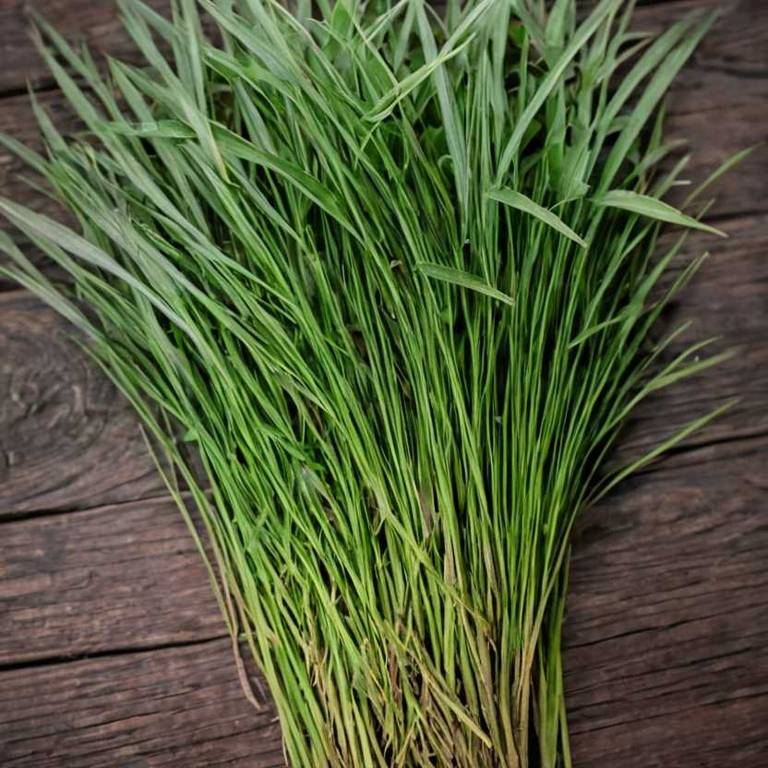Nard Grass (Cymbopogon nardus)
Nard Grass (Cymbopogon nardus) is a member of the Poaceae family, native to Southeast Asia, Australasia, and Pacific Islands. Traditionally, its leaves, stems, and resin have been used for infusions, decoctions, and oil infusions.
This herb is particularly valued for its sedative, anti-inflammatory, and diuretic actions, and has a long history of use in european herbal medicine, ayurvedic medicine, and african traditional medicine.

Quick Facts / Key Information
| Common Name | Nard Grass |
|---|---|
| Scientific Name | Cymbopogon nardus |
| Plant Family | Poaceae |
| Genus | Cymbopogon |
| Species | nardus |
| Native Range | Southeast Asia, Australasia, Pacific Islands |
| Plant Parts Used | Leaves, Stems, Resin |
| Primary Medicinal Actions | Sedative, Anti-Inflammatory, Diuretic |
| Primary Traditional Systems | European Herbal Medicine, Ayurvedic Medicine, African Traditional Medicine |
| Historical Preparation Methods | Infusion, Decoction, Oil Infusion |
Botanical Identity
- Scientific Name
- Cymbopogon nardus
- Common Name
- Nard Grass
- Synonyms / Alternative Names
- Nard Grass, Citron Grass, Patchouli
- Plant Family
- Poaceae
- Genus
- Cymbopogon
Botanical Description
- Growth Habit
- Perennial herbaceous plant.
- Height
- It typically reaches a height of 1 to 2 meters.
- Leaves
- Linear leaves with parallel venation, upper surface dark green, lower surface pale green, bearing distinct stomatal bands along midrib.
- Flowers
- Inflorescence composed of dense, spike-like clusters of small, pale yellow to white, actinomorphic florets with three stamens and a two-lobed pistil, arranged in a narrow, cylindrical raceme.
- Stems
- Cylindrical, hollow, fibrous, and aromatic, with a distinct node and internode structure, the stems are typically erect, unbranched, and have a smooth, glabrous surface.
Traditional Uses / Historical Use
Traditional Systems
- European Herbal Medicine
- Ayurvedic Medicine
- African Traditional Medicine
Historical Preparation Methods
- Infusion
- Decoction
- Oil Infusion
- Poultice
Medicinal Actions
- Sedative
- Historically regarded as a cooling sedative, in calming-focused applications.
- Anti-inflammatory
- Traditionally described as a soothing anti-inflammatory, in topical or internal use contexts.
- Diuretic
- In herbal literature, noted as a moderate diuretic, for elimination-focused applications.
- Carminative
- In herbal texts, considered a calming carminative, for digestive process support.
Active Compounds
- Essential Oil
- A complex mixture of volatile compounds produced by aromatic plant tissues.
- Terpenoid
- A large class of naturally occurring compounds derived from isoprene units.
- Flavonoid
- A widely occurring class of plant polyphenols found in leaves, flowers, and fruits.
- Phenolic Acid
- Simple phenolic molecules widely distributed across plant tissues.
Modern Research Overview
Contemporary research on this plant includes areas such as chemical analysis, laboratory-based studies, and observational research. Detailed summaries of published findings are not included at this stage and will be added during future content updates.
Safety & Contraindications
- General Precautions
- Caution is advised in certain contexts based on traditional use and available information.
- Contraindications
- Contraindications for this herb are not clearly established in available sources.
- Allergies
- There is insufficient evidence to determine whether this herb commonly causes allergic reactions.
- Drug Interactions
- Available information regarding interactions with pharmaceutical drugs is limited.
- Toxicity
- There is insufficient evidence to determine the toxic potential of this herb.
- Pregnancy & Breastfeeding
- Information addressing pregnancy and breastfeeding-related safety for this herb is limited.
Preparation & Usage Methods
- Infusion
- Water is poured over plant material and allowed to steep before straining.
- Decoction
- Plant parts are gently boiled in water to release soluble constituents.
- Poultice
- Plant parts are crushed or moistened and placed directly on the body.
- Capsule
- Capsules provide a standardized way to consume powdered plant material.
- Infused Oil
- This method allows plant material to release constituents into oil.
Growing, Harvesting & Storage
Growing / Cultivation
- Soil
- Prefers loamy soil with well-drained conditions. Typically grows best in organically rich soils.
- Sunlight
- Thrives in partial sun. Tolerates full sun to partial shade.
- Watering
- Prefers well-balanced moisture levels. Tolerates periodic dry conditions.
Medical Disclaimer
The information provided on this page is for educational and informational purposes only. It is not intended to diagnose, treat, cure, or prevent any medical condition. Always consult a qualified healthcare professional before using any herb for medicinal purposes.